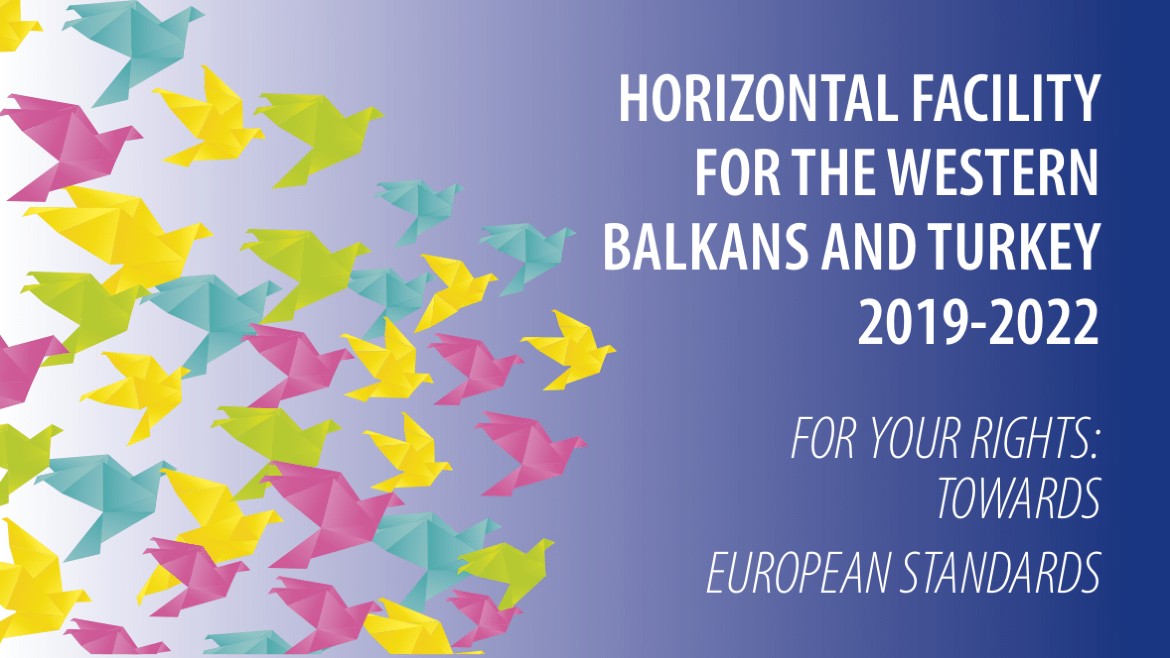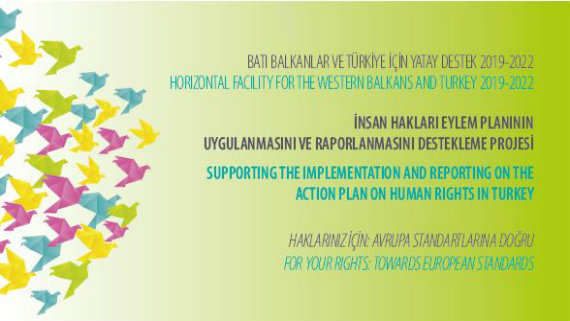Horizontal Facility for the Western Balkans and Turkey II

What is the Horizontal Facility?

The Horizontal Facility for the Western Balkans and Turkey (Horizontal Facility II) 2019-2022 is a co-operation initiative of the European Union and Council of Europe for the Western Balkans region and Turkey. It is one of the results of the Statement of Intent signed on 1 April 2014 by the Secretary General of the Council of Europe and the European Union Commissioner for Enlargement and European Neighbourhood Policy, in which both Organisations agreed to further strengthen their co-operation in key areas of joint interest.
The first phase of the programme included various beneficiary-specific and regional initiatives and ran from 2016 to 2019. The second phase of the programme keeps building on the results of the phase I and broadens the thematic areas to new topics crucial for the region – freedom of expression and media.
The second phase of the programme will cover actions in Albania, Bosnia and Herzegovina, Kosovo*, Montenegro, North Macedonia, Serbia as well as Turkey and the regional dimension of the programme will be strengthened. The Expertise Co-ordination Mechanism that provides legislative expertise and policy advice within the Council of Europe system will remain an important part of the programme available to all beneficiaries.
Why the Horizontal Facility II?
The Horizontal Facility programme has been developed as a flexible mechanism that will support beneficiary-tailored reform processes in the areas of rule of law, democracy and human rights with the aim for its beneficiaries to comply with European standards.
By improving the capacities of programme beneficiaries to tackle key issues in these areas and implement recommendations of relevant Council of Europe monitoring and expert bodies, the Horizontal Facility contributes to better life of citizens of the Western Balkans and Turkey.
How long will the Horizontal Facility II last?
How much will the Horizontal Facility II cost?
What will the Horizontal Facility II do?
Through the Horizontal Facility, the European Union and the Council of Europe will assist beneficiaries to comply with Council of Europe standards and European Union acquis in the framework of the enlargement process. The Horizontal Facility relies on the Council of Europe’s unique working methods, whereby tailor-made technical co-operation activities are based on conclusions and recommendations of the Council of Europe’s monitoring bodies highlight areas where improvements are needed in legislation and policies of the beneficiaries to comply with the Organisation’s treaties and other standards.
Themes covered by the Horizontal Facility include:
- Ensuring justice;
- Fighting economic crime;
- Combating discrimination and protecting the rights of vulnerable groups (including LGBTI, minorities and Roma) and
- Freedom of expression and freedom of the media.
All the themes are key priorities of the two Organisations in the Western Balkans region and Turkey.
All Horizontal Facility actions will address cross-cutting issues such as gender mainstreaming, protection of minorities and vulnerable groups and foresee the engagement of civil society organisations in the implementation of the programme.
Who coordinates the Horizontal Facility II?
A co-ordination mechanism between the Council of Europe, European Union, Council of Europe Field Offices, European Union Delegations and the so-called Horizontal Facility Beneficiary Co-ordinators (officials of the Ministries of Foreign Affairs or European Integration Offices appointed by the authorities of the beneficiaries concerned to act as focal points for the implementation of the Horizontal Facility) has been established to ensure inclusive and comprehensive co-ordination between the Council of Europe, the European Union, the stakeholders and partners in the jurisdictions concerned as well as with other international organisations.
This co-ordination mechanism will ensure synergies with other existing and planned actions in the region and will ensure tangible and sustainable results Horizontal Facility for the final beneficiaries and the general public.
More information about the Horizontal Facility II
*This designation is without prejudice to positions on status, and is in line with UNSCR 1244 and the ICJ Opinion on the Kosovo Declaration of Independence.
News
A study visit to Spain on Alternatives to Immigration Detention
International Roundtable on Alternatives to Immigration Detention
Training on “Human Rights and Migration” for the Lawyers of Elazığ and Kayseri Bars
Union of Bar Associations in Ankara raises capacity on prevention of labour exploitation
Training on “Human Rights and Migration” for the Lawyers of Giresun Bar
Closing Ceremony of the Irregular Migration Management Certification Programme held in Ankara
Three Online Courses with Ministry of Family and Social Services Launched on 09 June 2021
Roundtable Meeting with Law Enforcement Agencies on Smuggling of Migrants in Turkey Held
Several Migration related Council of Europe Publications are now available in Turkish
The right to a reasoned decision: Panel discusses meaning and prospects in Turkish law and practice
International Women’s Day: a call to prevent and combat sexism
Istanbul Convention at 10 years: leading the way to a life free from violence
Three webinars on combating trafficking in human beings held in Turkey
Call for expression of interest from qualified independent evaluators
The HELP course on refugee and migrant children launched for Turkish law students
WEBINAR: “Administrative Detention during Asylum Process and ECHR
For ambitious, yet actionable Human Rights Action Plans: Georgia and Turkey discuss their experience
Human rights policy based on solid evidence: Scotland and Turkey reflect on their experiences
COVID-19 and isolation at home may increase the risk of violence for women and children
Authorities of Turkey show commitment to better protection of human rights




